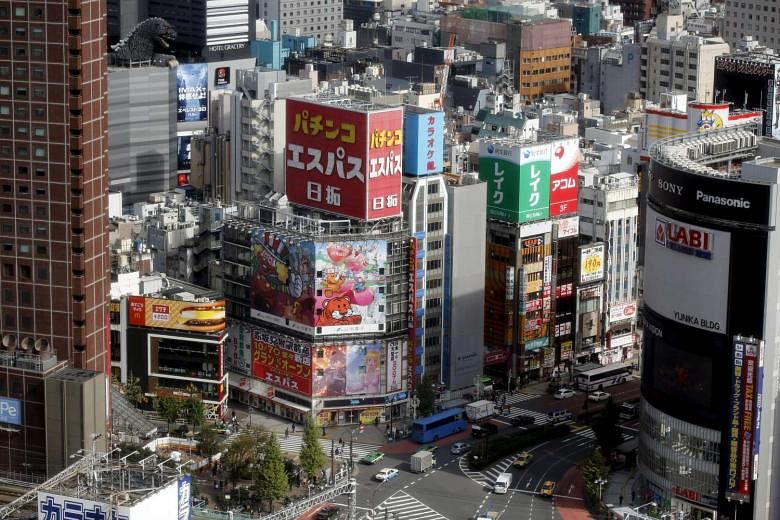TOKYO (REUTERS) - Japanese Prime Minister Shinzo Abe's Cabinet approved on Thursday (Dec 24) a record fiscal 2016 Budget that counts on higher growth and tax revenue to achieve his aim of reviving the economy and reining in huge public debt.
Total spending for the fiscal year starting April 1 will be 96.72 trillion yen (S$1.12 trillion).
The initial spending plan for the current year totalled 96.3 trillion yen.
The draft Budget - the fourth since Mr Abe returned to power in late 2012 - features record welfare spending to cope with the fast-ageing population and a military outlay that topped five trillion yen for the first time ever.
The proposed Budget underscores the challenge Mr Abe faces in striking a balance between the need to stimulate the flagging economy ahead of an upper house election and to curb the world's heaviest public debt burden at the same time.
Tax revenue is estimated at a 25-year high of 57.6 trillion yen on the back of rising corporate profits, allowing Tokyo to cut fresh borrowing to an eight-year low of 34.43 trillion yen.
This would bring Japan's fiscal dependence, the ratio of bond issuance to budget revenue, to 35.6 per cent - the lowest since fiscal 2008, just before the global financial crisis hit the world's third largest economy.
With this Budget, policymakers say Japan is making progress towards its aim of achieving a primary budget surplus - excluding new bond sales and debt servicing - in fiscal 2020.
The government has set an interim target of reducing the primary budget deficit to 1 per cent of GDP in fiscal 2018, aiming to limit rises in general spending to about 1.6 trillion yen over the coming three years.
But fiscal improvement depends largely on tax revenue windfalls from corporate profits due to a weak yen, and on low interest rates that limit rises in debt-servicing costs.
Social security spending, the budget's biggest item, will rise 441 billion yen to a record 31.97 trillion yen.
Defence spending hit a record 5.05 trillion yen, rising for four years in a row, reflecting US base realignment and China's rising military might.
Assumed interest rates will be cut from this year's 1.8 per cent to a record low of 1.6 per cent thanks to massive debt buying by the central bank, limiting gains in interest payments. Still, the snowballing pile of outstanding debt will push up debt-servicing costs by 161 billion yen to a record 23.61 trillion yen.

